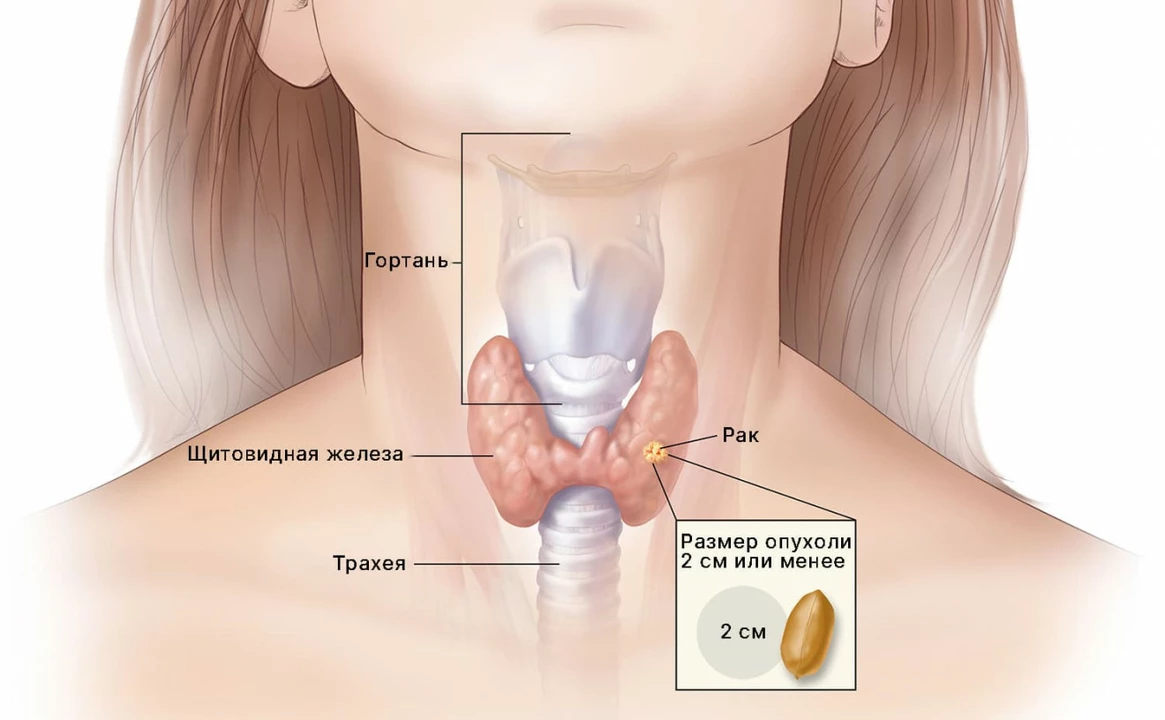Thyroid cancer: symptoms, diagnosis and clear treatment steps
Worried about a lump in your neck or a change in your voice? Thyroid cancer is a common concern, but most cases are found early and treated successfully. This page gives you practical signs to watch for, the tests doctors will use, and the main treatment options — all in plain language so you can talk with your care team confidently.
What to watch for
Notice any new lump or nodule in the front of your neck, especially if it grows or feels hard. Other common signs include a hoarse voice that doesn’t get better, trouble swallowing, or a persistent cough not linked to a cold. Pain is less common. Many thyroid cancers cause no symptoms and are found during a routine exam or imaging done for another reason.
How doctors figure it out
Your doctor will start with a physical exam and ask about family history and radiation exposure. The usual next steps are a neck ultrasound to look at the thyroid and nearby lymph nodes, and a fine-needle aspiration (FNA) biopsy if a suspicious nodule is seen. Blood tests check thyroid hormone levels but don’t diagnose cancer. Sometimes an FNA result is unclear; in that case, molecular testing or a repeat biopsy can help decide the next move.
Staging (how far cancer has spread) often uses ultrasound and sometimes CT, MRI, or a radioactive iodine scan. Staging helps pick the right treatment and follow-up plan.
Treatment depends on the type and stage. Most thyroid cancers are papillary or follicular types — these respond well to surgery and often lead to excellent long-term survival. Medullary and anaplastic thyroid cancers are less common and may need different approaches.
Surgery is the main treatment for most cases. That can mean removing part of the thyroid (lobectomy) or the whole gland (total thyroidectomy). Your surgeon will discuss whether nearby lymph nodes should be removed. After surgery, many people need lifelong thyroid hormone pills to replace the missing gland and keep hormone levels steady.
Radioactive iodine (RAI) is commonly used after surgery for certain types of thyroid cancer to destroy leftover cells. External beam radiation or targeted drugs may be used in specific cases, especially if the cancer doesn’t respond to RAI. Chemotherapy is rarely used for typical papillary or follicular cancers.
Follow-up care includes regular physical exams, blood tests for thyroglobulin (a tumor marker for some thyroid cancers), and periodic neck ultrasounds. Most people do very well with proper follow-up.
If you have a thyroid nodule, do not panic. Ask your doctor for an ultrasound and, if needed, an FNA. Keep a record of changes in your neck, voice, or swallowing, and bring those notes to appointments. For more plain-language articles, treatment tips, and medication info, check the resources at Medzino.com or talk to your endocrinologist or surgeon.

Thyroid Cancer and Sleep: Tips for Better Rest During and After Treatment
As a thyroid cancer patient, I've realized that getting a good night's sleep during and after treatment can be a challenge. Many factors, such as stress, anxiety, and side effects of medications, can greatly affect our sleep quality. To improve my sleep, I've found that maintaining a consistent bedtime routine, creating a relaxing sleep environment, and managing stress through relaxation techniques have been very helpful. Furthermore, engaging in regular physical activity and seeking support from loved ones or professional counselors can significantly contribute to better rest. Remember, getting enough sleep is crucial for our overall well-being, especially during this challenging phase of our lives.
